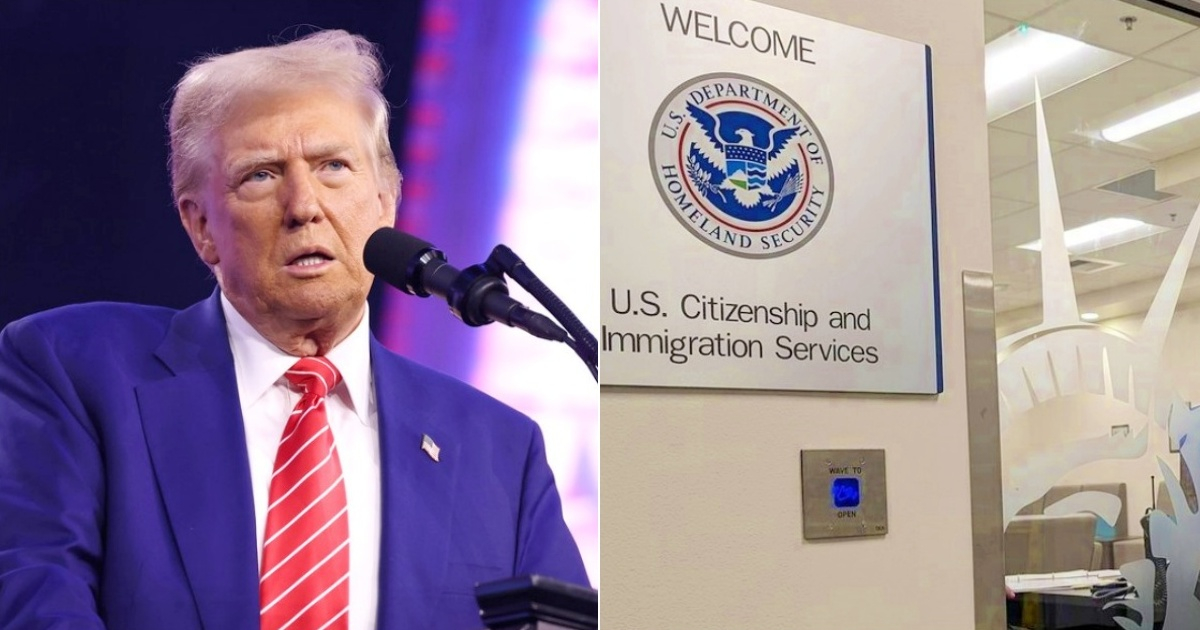
Related videos:
The President of the United States, Donald Trump, signed an executive order on Monday aimed at denying citizenship to the children of undocumented immigrants born on U.S. soil.
The measure aims to reinterpret the 14th Amendment of the Constitution, which currently guarantees nationality to anyone born in the United States, regardless of their parents' immigration status.
The executive order would only apply to future births, a member of Trump's team stated at a press conference this Monday morning.
If implemented, this policy would prevent the State Department from issuing passports to children born to undocumented parents and would restrict their recognition as citizens by the Social Security Administration.
This would hinder their access to basic rights and their ability to work legally in the country.
The elimination of birthright citizenship is a recurring demand from conservative sectors in the United States. During his first term (2017-2021), Trump threatened to take similar action, but he did not follow through on it.
Reactions and possible legal challenges
The White House has not specified how this policy will be implemented, which will likely face significant legal challenges.
Many legal experts consider it unconstitutional, and the first lawsuits against it have already been filed.
The American Civil Liberties Union (ACLU) and other human rights organizations filed a lawsuit this Monday in the District Court for the District of New Hampshire.
In their statement, they indicated that this order will stigmatize affected children and other citizens whose citizenship could be questioned due to their race or the origin of their parents.
According to the organizations, these children could face difficulties obtaining identification documents, voting, working, or fully integrating into American society, despite being born in the United States.
Historical context and possible alternatives
Changing the interpretation of citizenship by birth would ultimately require a constitutional amendment.
This would require a two-thirds majority in the House of Representatives and the Senate, in addition to the ratification of three-quarters of the states, explained Scott Bomboy, historian at the National Constitution Center.
Although there are no exact figures on the number of children born in the United States to undocumented parents, a 2022 report from the Pew Research Center estimated that there were around 1.3 million American adults whose parents lacked legal status.
Similarly, a 2018 report from the Congressional Research Service noted that, although the current interpretation of the 14th Amendment considers the children of undocumented immigrants to be citizens, the Supreme Court has not definitively resolved the issue in the modern era, leaving room for potential legal challenges.
Frequently Asked Questions about Birthright Citizenship and Trump's Immigration Policies
What is birthright citizenship in the United States?
Birthright citizenship is a principle established by the 14th Amendment of the United States Constitution that grants automatic citizenship to anyone born on U.S. soil, regardless of their parents' immigration status. This provision has been criticized by Donald Trump, who has expressed his intention to abolish it through an executive action.
Is it possible to eliminate birthright citizenship in the United States with an executive order?
It is not possible to eliminate birthright citizenship through an executive order, as it is guaranteed by the 14th Amendment of the U.S. Constitution. Any attempt to change this provision requires a constitutional amendment, which is a complex process that involves the approval of two-thirds of both houses of Congress and ratification by three-fourths of the states. Legal experts deem Trump's proposal unconstitutional.
What impact would the elimination of birthright citizenship have in the United States?
The elimination of birthright citizenship would have a devastating impact on millions of immigrant families and the U.S. economy. New classes of "stateless" individuals would be created, with children born in the U.S. lacking nationality and access to basic rights, affecting mixed-status families and further complicating the immigration system.
What are the reactions to Trump's proposal to eliminate birthright citizenship?
The Trump proposal has generated mixed reactions. While Democrats and human rights organizations deem it unconstitutional and an assault on civil rights, the conservative base and Trump supporters endorse it, considering it a necessary step to control immigration.
Which countries grant citizenship by birthright?
More than 30 countries grant citizenship by birthright, including the United States, Canada, Brazil, and several Latin American countries. This provision, known as "jus soli" or the right of the soil, is common in nations with legal systems derived from British common law or that seek to attract immigrants to populate their territories.
Filed under: